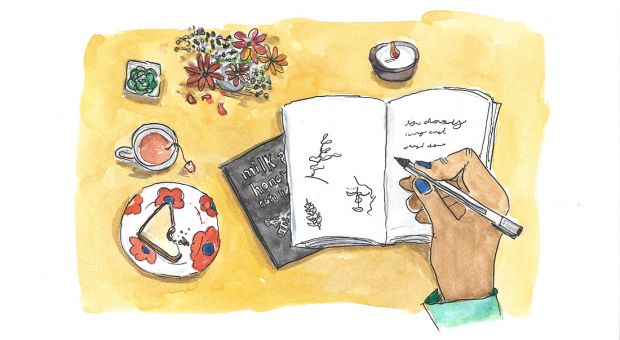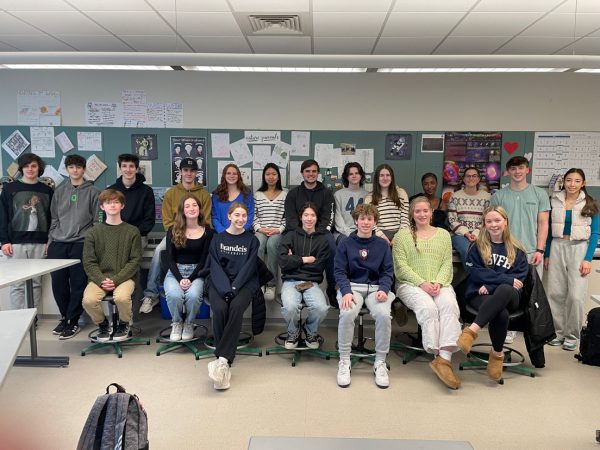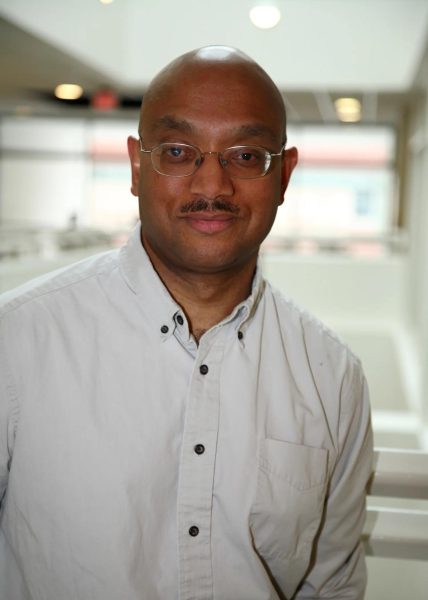The Pandemic Poetry Project
Through a group poem, Ms. Weisse hopes to memorialize the unique experience of living through a global pandemic.
COVID-19. Lockdown. Social distancing. The pandemic has taken up substantial space in all of our minds for over a year, and we’ve all been affected, both as a community and individually. Since the past year has been such a turbulent time, it seems like it’ll be pretty difficult to forget. However, history suggests we may forget the pandemic sooner than we think.
Danielle Weisse, L-S English teacher, has a solution that she hopes will forever preserve our memories: a group poem about the L-S community’s experiences with COVID-19, featuring writing from students and staff alike.
Ms. Weisse initially got the idea from an NPR story. “They had asked people to send in parts and that’s where I first got the idea of a group poem… I thought it would be a great way to mark it and to sort of say, ‘We made it through,” she says. Ms. Weisse also credits English teachers Jennifer Garfield and Annalisa Notaro for helping to flesh out the concept.
Everyone, both students and staff, has been invited to write up to 250 characters for the poem. Participants are provided with three prompts: “Before this began,” “Now,” and “When this is over.” “You can use all or none of those prompts,” Weisse explains.
The finished project, which will likely be completed over the summer, may be presented to the students through a banner or public reading. In addition, Ms. Weisse hopes to publish it in the Fountain. “We are hoping at the end to… do something that will really memorialize it forever, and not just be something we do this year but something that would stay in the school and be a physical representation,” she says.
Ms. Weisse hopes that the project will have a lasting impact on the L-S community. “I think it represents a variety of feelings, and people will end up seeing themselves in the poem and realizing other people feel the same way they do, but also getting a perspective they didn’t have,” she says.
Submissions are still being accepted for the project through the end of May. Students can email their entries to Ms. Weisse, Ms. Garfield, or Ms. Notaro, or pass it on through their English teacher. “You can still take part and send your entry and we’ll make sure it gets in,” says Ms. Weisse. Participants’ names will not be put next to the section that they wrote, but rather as a list of contributors at the end of the poem, so submissions will remain anonymous to the public.
If students want to get even more involved, there is a way to do so. “We’re inviting students to help us edit it and put it into final form, so we would love help doing that and get students involved in any way they would like to be,” Ms. Weisse says. Those who are interested can email her.
Through a group poem, Ms. Weisse hopes to memorialize the unique experience of living through a global pandemic. As Weisse says, “I don’t want to forget what it was like.”







